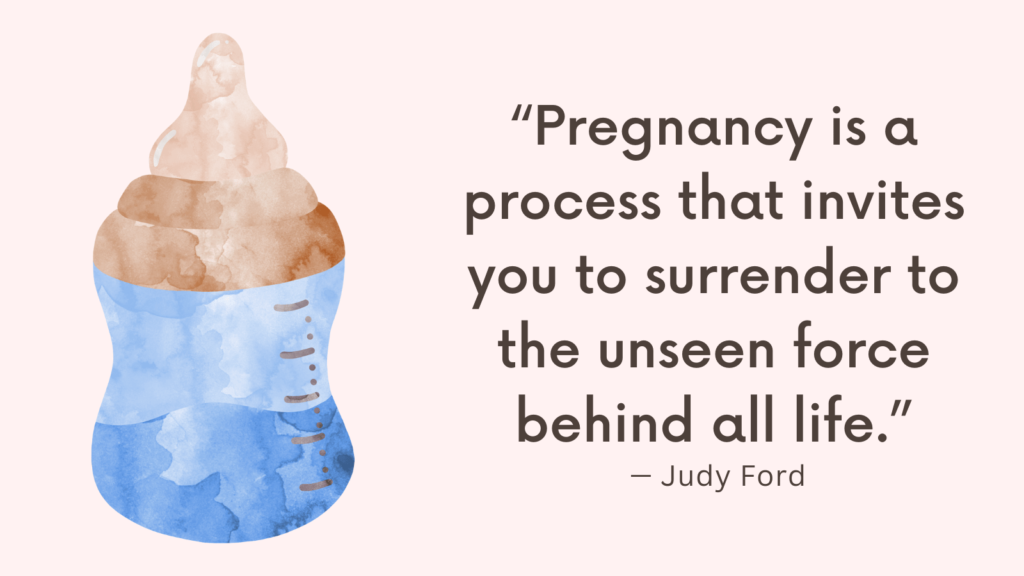Flutters may be felt, growing belly, and glowing skin or pregnancy acne.
You’re 16 weeks pregnant! You’re officially four months along, and your baby is growing rapidly. Your energy levels may be higher, your bump might be more visible, and exciting changes are happening inside your womb. This is also the time when some moms start feeling baby movements for the first time!
Let’s dive into your baby’s development, changes in your body, and how to manage symptoms at 16 weeks pregnant.
What’s Happening to Your Baby?
At 16 weeks, your baby is about the size of an avocado (11-12 cm or 4.5-5 inches long) and weighs around 100 grams (3.5 oz). Your little one is becoming more active and expressive!
Major Developments This Week:
Baby Can Make Facial Expressions! – Your baby is now smiling, frowning, and even squinting.
Hearing Is Improving – Tiny bones in the ears are forming, and your baby can start hearing sounds from the outside world.
Movements Are Getting Stronger! – Your baby is kicking, stretching, and twisting more often. Some moms start feeling these little flutters!
Eyes Are Moving! – Even though the eyelids are still shut, your baby can move their eyes under them.
Skin Is Developing but Still Translucent – Over the next few weeks, fat layers will start forming to protect the skin.
Baby’s Heart Is Pumping Strongly – The heart is now pumping around 25 quarts of blood per day.
Taste Buds Are Forming – Your baby can taste amniotic fluid and will soon start recognizing flavors based on what you eat!
What’s Happening to Your Body?
At 16 weeks pregnant, you might be feeling great! Many women experience a boost in energy, reduced nausea, and a growing baby bump.
Common Symptoms at 16 Weeks Pregnant:
More Energy – Fatigue continues to improve for most women.
Baby Bump Is More Noticeable – Your uterus is growing, and your belly may start showing more!
Feeling Baby Movements (Quickening)! – Some moms start feeling tiny flutters this week.
Round Ligament Pain – Mild stretching or pulling as your uterus expands.
Increased Appetite – You might feel hungrier as your baby grows.
Nasal Congestion – Higher estrogen levels can make your nose feel stuffy.
Mild Swelling in Feet & Hands – Water retention may cause slight puffiness.
Pregnancy Glow! – Increased blood flow and hormones can make your skin look brighter and healthier.
Backaches – As your belly grows, your posture changes, which may lead to back pain.
How to Cope with Week 16 Pregnancy Symptoms
1. Managing Increased Appetite
Eat nutrient-rich foods to support your baby’s growth.
Snack on healthy options like nuts, yogurt, and fruits.
Don’t overeat! Listen to your body’s hunger cues.
2. Feeling Baby Movements (Quickening)
Movements may feel like tiny flutters, bubbles, or gas.
If you don’t feel anything yet, don’t worry! Many women feel the first movements closer to 18-20 weeks.
Try lying still after eating to notice movements.
3. Handling Round Ligament Pain
Stretch gently or try prenatal yoga to relieve tension.
Change positions slowly to avoid sudden discomfort.
Use a belly band for extra support if needed.
4. Preventing Constipation & Bloating
Eat fiber-rich foods like fruits, vegetables, and whole grains.
Drink plenty of water to keep digestion moving.
Stay active – Walking can help relieve bloating.
5. Coping with Nasal Congestion
Use a humidifier to keep the air moist.
Drink plenty of fluids to stay hydrated.
Try saline nasal sprays (pregnancy-safe).
6. Managing Backaches
Maintain good posture and avoid slouching.
Use a pregnancy pillow for support while sleeping.
Do gentle stretches or prenatal yoga to ease back pain.
What Should You Be Doing in Week 16?
Now that you’re in the second trimester, here’s what to focus on this week:
1. Schedule Your Next Prenatal Appointment
Your doctor will check your uterus size and baby’s heartbeat.
You may discuss the anatomy scan (usually between weeks 18-22).
If you’re considering a gender reveal, your doctor may schedule a gender ultrasound soon!
2. Keep Taking Your Prenatal Vitamins
Ensure your vitamin contains 400-800 mcg folic acid for brain and spinal cord development.
A vitamin with DHA & Omega-3s supports baby’s brain growth.
3. Eat a Healthy Pregnancy Diet
Include protein-rich foods like eggs, chicken, and tofu.
Eat calcium-rich foods like yogurt, milk, and cheese.
Stay hydrated – Drink at least 8 glasses of water daily.
4. Start Looking Into Maternity Clothes
Your regular jeans may feel tight, and your baby bump may be growing.
Consider maternity leggings, stretchy pants, or loose dresses.
5. Think About Baby Names!
If you haven’t started yet, make a list of baby names you like!
Discuss with your partner and narrow down your favorites.
6. Plan a Babymoon (If You Want One!)
The second trimester is the best time to travel before baby arrives.
Check with your doctor if you plan to fly or take a trip.
7. Start a Pregnancy Journal or App
Document how you feel each week.
Take weekly bump photos to track your progress.
Final Thoughts
You’re 16 weeks pregnant, and your baby is growing fast! This is an exciting phase because many women feel better, have more energy, and start feeling baby movements.
Your baby is developing tiny features, practicing movements, and even reacting to sound! Symptoms like bloating, nasal congestion, and round ligament pain may still be there, but you’re on your way to a more comfortable trimester.


